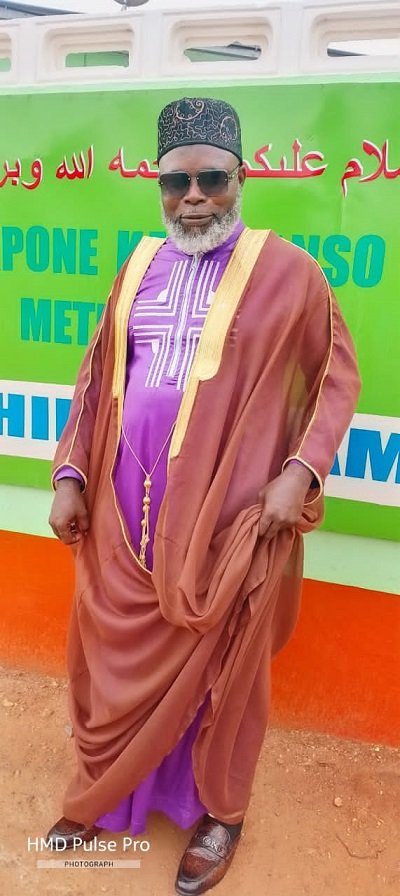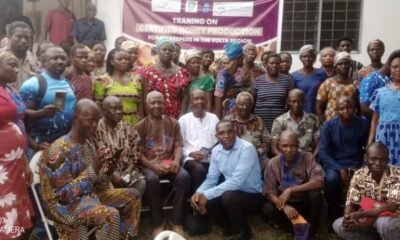Fruitful Living
The power and means to change: The Word of God

• The Bible reveals God’s truth
All Scripture is God-breathed and is useful for teaching, rebuking, correcting and training in righteousness, so that the servant of God may be thoroughly equipped for every good work. – 2 Timothy 3:16-17
INTRODUCTION
The Bible is not a collection of stories, fables, myths, or merely human ideas about God. Through the Holy Spirit, God revealed His person and plan to certain believers, who wrote down His message for His people. Scripture is completely trustworthy because God was in control of its writing. Its words are entirely authoritative for our faith and life. The Bible is ‘God-breathed.’ Read it and use its teachings to guide your conduct.
The whole Bible is God’s inspired Word, because it is inspired and trustworthy, we should read it and apply it to our life also. The Bible is our standard for testing everything else that claims to be true. It is our safeguard against false teaching and our source of guidance for how we should live. It is our only source of knowledge about how we can be saved. God wants to show us what is true and equip us to live for Him. How much time do we spend in God’s Word? Read it regularly to discover God’s truth and to become confident in our lives and faith.
In our zeal for the truth of Scripture, we must never forget its purpose – to equip us to do good. We should not study God’s Word simply to increase our knowledge or to prepare us to win arguments. We should study the Bible so that we will know how to do Christ’s work in the world. Our knowledge of God’s Word is not useful unless it strengthens our faith and leads us to do good.
1. The Word of God is powerful; because it is the declaration of Almighty God who created all that exists and continues to work out His purposes for the good of all creation. God commanded creation into existence by His Word – In the beginning God created the heaven and the earth. And the earth was without form, and void; and darkness was upon the face of the deep. And the Spirit of God moved upon the face of the waters. And God said, Let there be light: and there was light. – (Genesis 1:3).
Spiritual re-creation is also through the Word of God – For you have been born again, not of perishable seed, but of imperishable, through the living and enduring word of God. – 1 Peter 1:23.
2. We experience cleansing in our spiritual journeys through the Word of God. Jesus said, ‘You are already clean because of the word I have spoken to you’ – John 15:3. It is also by the Word of God that we are sanctified; being set apart from sin for holiness – (Sanctify them by the truth; your word is truth – John 17:17)
3. We also experience growth and transformation in our lives through the Word of God. The two parallel passages of Scripture; Ephesians 5:15-20 and Colossians 3:12-17 address being filled with the Spirit and the Word of God, respectively:
‘Be very careful, then, how you live-not as unwise but as wise, making the most of every opportunity, because the days are evil. Therefore do not be foolish, but understand what the Lord’s will is. Do not get drunk on wine, which leads to debauchery. Instead, be filled with the Spirit, speaking to one another with psalms, hymns, and songs from the Spirit. Sing and make music from your heart to the Lord, always giving thanks to God the Father for everything, in the name of our Lord Jesus Christ. – Ephesians 5:15-20
Therefore, as God’s chosen people, holy and dearly loved, clothe yourselves with compassion, kindness, humility, gentleness and patience. 13 Bear with each other and forgive one another if any of you has a grievance against someone. Forgive as the Lord forgave you. 14 And over all these virtues put on love, which binds them all together in perfect unity.
Let the peace of Christ rule in your hearts, since as members of one body you were called to peace. And be thankful. Let the message of Christ dwell among you richly as you teach and admonish one another with all wisdom through psalms, hymns, and songs from the Spirit, singing to God with gratitude in your hearts. And whatever you do, whether in word or deed, do it all in the name of the Lord Jesus, giving thanks to God the Father through him. – Colossians 3:12-17.
It is not a coincidence that the results of the two infillings are the same; that is in-depth spirituality and fruitfulness. Lives are transformed as we obey the Word of God in the power of the Holy Spirit.
4. God’s part is to cause spiritual re-creation, growth, and fruitfulness through the working of His Spirit in our lives. Our party is to obey God by the faith that works through love. ‘For in Christ Jesus neither circumcision nor uncircumcision has any value. The only thing that counts is faith expressing itself through love.’ – Galatians 5:6.
- To experience lasting change, we need to abandon our lives wholeheartedly and totally to God. The life and teachings of Jesus Christ provide us with a good example. Jesus dedicated His life to God’s will when He declared to God that, ‘Lo I have come to do your will’ – Hebrews 10:9.
- Secondly, we need to fill our lives with the Word of God.
- Thirdly, we need to live our lives in obedience to God’s Word through dependence on the Spirit of God.
5. A common result of being filled with the Word of God and the Spirit of God (Ephesians 5 and Colossians 3) is gratitude to God.
If you remain in me and my words remain in you, ask whatever you wish, and it will be done for you. This is my Father’s glory, that you bear much fruit, showing yourselves to be my disciples. – John 15:7-8
As God causes growth and fruitfulness in our lives, we have cause to praise and thank Him for His grace. We are motivated and directed by His Spirit and Word to do all things as unto Him. ‘Whatever you do, work at it with all your heart, as working for the Lord, not for human masters,’ – Colossians 3:23.
6.As Christians live by the Word of God, churches are transformed. Transforming Christians and churches can impact the rest of society for good. Let us, therefore, strive to be doers of the Word, and not only hearers. ‘Do not merely listen to the word, and so deceive yourselves. Do what it says.’ – James 1:22.
Conclusion
The Word of God is a powerful instrument for change because it is the revelation of the will of God and is backed by His unlimited power.
Published by permission from AFREG.
Stay blessed!
For further enquiries please contact us on Tel Nos. 0268130615 or 0243588467
Email: saltnlightministries@gmail.com
Website: saltandlightgh.org
By Dr. Joyce Aryee, the author
Fruitful Living
Eid-ul-Adha: A living legacy of faith, sacrifice, and devotion

We begin in the name of Allah, the Most Merciful, the Most Compassionate. We praise Him, seek His help and forgiveness, and seek refuge in Him from the evils of our souls and the wrongs of our actions.
May peace and blessings be upon the Prophet Muhammad (peace be upon him), his family, his noble companions, and all those who follow his path until the Day of Judgment.
Understanding the essence
of Eid-ul-Adha
Eid-ul-Adha, the Festival of Sacrifice, is one of the two major Islamic celebrations observed by Muslims across the world.
It commemorates the unwavering submission of Prophet Ibrahim (Abraham, peace be upon him) to Allah’s command when he was prepared to sacrifice his beloved son Isma’il (Ishmael, peace be upon him). Allah, in His infinite mercy, intervened and replaced the son with a ram, thus honouring Ibrahim’s sincerity and faith.
This moment of sacrifice is recorded in the Qur’an: “Then when they had both submitted and he put him down upon his forehead, We called out: ‘O Ibrahim! You have fulfilled the vision.’ Indeed, We thus reward the doers of good.” (Surah As-Saffat, 37:103–105)
This act of obedience is not merely a historical account. It is a living symbol that forms the essence of Eid-ul-Adha.
Ibrahim (A.S): The Architect
of Submission
Before the moment of sacrifice, Prophet Ibrahim and his family played critical roles in establishing Islam’s foundational pillars:
1. The building of the Ka‘bah
Prophet Ibrahim and his son Isma’il were chosen to construct the Ka‘bah, the sacred House of Allah in Makkah. The Qur’an records this noble moment:
“And [mention] when Ibrahim was raising the foundations of the House and [with him] Isma’il, [saying], ‘Our Lord, accept [this] from us. Indeed, You are the Hearing, the Knowing.’”
(Surah Al-Baqarah 2:127)
This structure remains the spiritual centre of Muslim worship, facing which over a billion Muslims direct their daily prayers.
2. The struggle of Hajar (Hajara) between Safa and Marwa
The mother of Isma’il, Hajar (Hajara), exemplifies a profound lesson of patience and faith. Left in the barren valley of Makkah with her infant, she ran between the hills of Safa and Marwa, desperately searching for water. Her perseverance was rewarded when the well of Zamzam sprang forth at the feet of her baby.
Her sincere struggle is now ritualised in Hajj as the Sa‘i between Safa and Marwa—a reminder of the role of women, the power of du‘a, and the value of trust in Allah’s provision.
Sacrifice at Mina and the
Rites of Jamarat
During Hajj, pilgrims reenact Ibrahim’s confrontation with Shaytan at Mina, where he rejected the devil’s temptation and cast stones at him. This act is now observed in Hajj as the ritual of stoning the Jamarat, symbolising the rejection of evil, temptation, and disobedience.
It is a vivid spiritual lesson: the path to Allah is one of resistance to distraction and sin, and one must be prepared to fight these forces with unwavering faith.
The essence of Arafat in Hajj
The Prophet Muhammad said:“Hajj is Arafah.” (Sunan al-Tirmidhi, 889)
Standing on the plain of Arafat, in deep humility and supplication, is the heart of Hajj. It represents the Day of Judgment, when all of humanity will stand before their Creator. The Prophet said: “There is no day on which Allah frees more people from the Fire than the Day of Arafah.” (Sahih Muslim, 1348)
For pilgrims, Arafat is a time of repentance, reflection, and renewal— and for non-pilgrims, fasting on that day is highly recommended.
Three core lessons from the
Sacrifice of Prophet Ibrahim
(A.S.)
1. Absolute obedience to Allah
Ibrahim’s willingness to sacrifice his son teaches that the essence of faith is unquestioning obedience to Allah. He prioritised divine command over emotion, logic, or comfort.
Takeaway:
In our lives, we must also be ready to put aside our desires, egos, and even attachments if they conflict with Allah’s instructions. This may involve sacrifices such as waking up for Fajr, staying away from haram income, or being truthful in difficult situations.
2. Sincere intention and inner sacrifice
The real essence of the sacrifice lies in the heart’s submission to Allah.
It is neither their meat nor their blood that reaches Allah, but it is your piety that reaches Him.”
(Surah Al-Hajj 22:37)
Takeaway:
Every act of worship should be grounded in sincerity. Whether it is prayer, charity, or sacrifice, what matters most is the purity of our intention.
3. Sacrifice for the greater good
The legacy of Eid-ul-Adha teaches us that sometimes, faith requires us to give up what we love for a greater purpose. Sacrificing wealth, time, or status in the path of Allah or for the benefit of others leads to spiritual elevation.
Takeaway:
Use your resources such as time, money, skills, for acts of benefit: support the poor, educate the young, assist the sick, and build your community.
Celebrating Eid-ul-Adha: A
Festival for all Muslims
Even for those who do not go on Hajj, Eid-ul-Adha holds immense significance. Muslims across the world participate in the act of Qurbani (sacrifice) to honor the tradition of Ibrahim (A.S.).
Types of animals and their
symbolism
Permissible animals include goats, sheep, cows, and camels. Each must meet a minimum age and be free of defects. The sacrificed animal is then divided into three parts: one for the family, one for relatives and friends, and one for the poor and needy.
This distribution reflects the spirit of sharing, compassion, and social responsibility—values at the heart of Islam.
The eternal message of Eid-ul-Adha
Eid-ul-Adha is not merely a celebration; it is a living tradition that calls us to:
• Submit like Ibrahim,
• Strive like Hajar,
• Sacrifice like Isma’il,
• Reflect like the pilgrims at Arafat.
May this Eid awaken within us a renewed commitment to obedience, sincerity, and compassion.
Let us make every Eid-ul-Adha a step forward in our spiritual journey, embodying the values of submission, sacrifice, and service to humanity. I wish every Muslim Eid Mubaarak
By Imaam Alhaji Saeed Abdulai
(Kpone Katamanso Metropolitan Chief Imaam)
Fruitful Living
Steps taken by government to combat illicit drugs (Final part)
The Minister for the Interior, Muntaka Mohammed-Mubarak, has reaffirmed the government’s commitment to combating drug abuse and illicit trafficking for a safer environment which would
go a long way to make Ghana a drug-free country. 3News.com (2025)
Solutions to Illicit Drugs from the Islamic perspective
are comprehensive and emphasise of both prevention and treatment:
Tarbiyah (Islamic nurturing): Instilling strong Islamic values from childhood through Qur’anic education, regular prayer, and association with righteous companions.
Community preaching (Da’wah): Imams must consistently raise awareness during khutbahs and Islamic programs about the dangers of drugs and the beauty of a sober, productive life.
Faith-based rehabilitation: Mosques and Islamic centers can partner with medical institutions to offer Qur’an therapy, spiritual counseling, and structured recovery programs.
Islamic youth clubs: Providing youth with halal entertainment, mentorship, and purposeful engagement can steer them away from harmful peer groups.
Zakat and Sadaqah: Channelling funds to support families of victims and establishing centres for rehabilitation.
Role of Parents, Society, Muslim Chiefs and Imams:
Parents must be vigilant and provide emotional support. A loving, nurturing home reduces a child’s vulnerability to drugs.
Society should de-stigmatize addiction. Drug users should be seen as patients needing healing, not criminals deserving rejection.
Muslim Chiefs must lead community campaigns, setting moral examples and supporting policy enforcement.
Imams must be more than religious leaders—they must become counsellors, educators, and advocates. Their leadership can shift public perception and guide collective action.
Conclusion
Illicit drugs pose one of the most dangerous threats to our society, undermining our religious values, harming our youth, and destroying our future. The Islamic position is clear and
Unequivocal: such substances are forbidden due to their destructive consequences on all aspects of life. Islam does not merely condemn the act but calls for a holistic response—spiritual, social, and structural.
As a society, particularly as Muslims, we must rise to confront this crisis with faith, compassion, and commitment. We must not only preach against drugs but actively work to rehabilitate victims, educate the next generation, and partner with public institutions to create a society of wellness and righteousness.
Recommendations
1. Introduce Islamic drug awareness education in madrasas and public schools, using Quran and Hadith-based materials to instill moral responsibility.
2. Create partnerships between the Ghana Narcotics Control Commission, Ghana Health Service, and Muslim organisations to develop culturally sensitive rehabilitation centres.
3. Train Imams and teachers in basic mental health and drug abuse counselling to serve as front-line responders in communities.
4. Utilise Friday sermons (khutbahs) nationwide to address the dangers of drug abuse periodically and provide practical steps for prevention.
5. Encourage community surveillance, where parents, chiefs, and youth groups report dealers and suspicious activities to the authorities.
6. Establish mentorship programmes in every Muslim community where successful, drug-free role models mentor youth.
7. Form interfaith coalitions, working across religious lines to tackle the drug menace as a national threat rather than a religious issue.
8. Provide job skills training for rehabilitated victims, helping them reintegrate into society and live dignified, self-sufficient lives.
By Imam Alhaji Saeed Abdulai, the Author







